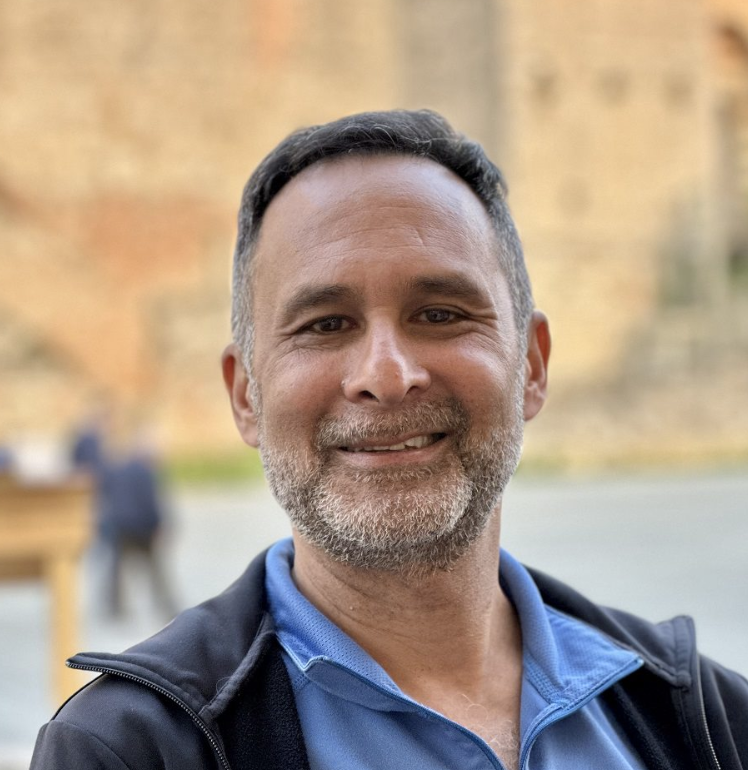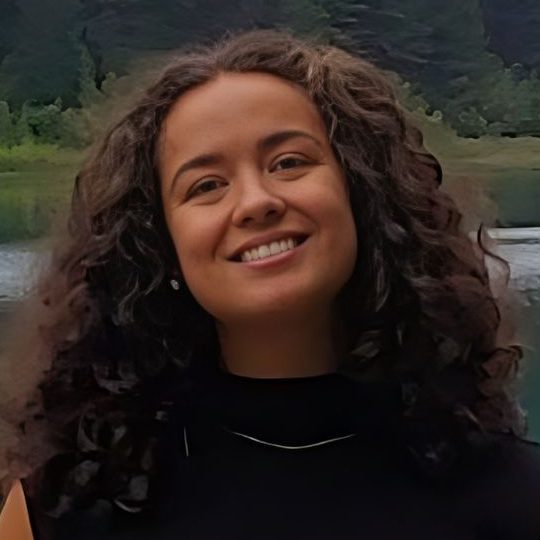Thank you for joining us virtually on Friday, January 24th, 2025, from 12:00 pm – 2:00 pm (PST) for “Moving from Harm to Healing in EDI, Medical Education, and Clinical Practice.“ In this It Starts With Us session, we discussed reimagining conflict in medical education, clinical practice, leadership and EDI through restorative justice. The panelists, including leaders, healthcare professionals, faculty, and staff, explored the potential limitations of retributive justice and the transformative potential of alternative conflict engagement practices, and how these concepts can be embedded into healthcare education, clinical practice and leadership. This conversation sheds insights on practical strategies for transitioning from harm to healing and fostering meaningful cultural change.
The panel featured Alan Jacobs (Department Head, UBC Political Science), Ashley Moore (Associate Director, Education, Community & Conflict Engagement, EIO), Jennifer Atkins (Indigenous Patient Navigator, PHSA), Saleem Razack (Paediatric Intensivist, BC Children’s & REDI Senior Faculty Advisor), Shain Jackson (Executive Director, Golden Eagle Rising Society), Shirley Nakata (UBC Ombudsperson), and Richard Price (Professor, UBC Political Science). It was co-moderated by Maï Yasué (REDI Associate Director) and Madison Tardif (REDI Equity Advisor).
Speaker bios

Alan Jacobs (He/Him)
Department Head, Political Science, UBC
Alan M. Jacobs (Ph.D. Harvard, 2004) is Head of Department and a Professor of Political Science specializing in the comparative political economy of advanced industrialized democracies, the politics of public policy, political behavior, and qualitative and mixed methodology. He teaches undergraduate and graduate courses on the comparative politics of inequality, qualitative research methods, and research design.
Jacobs’ first book, Governing for the Long Term: Democracy and the Politics of Investmentexamined how democratic governments manage long-term policy issues. This book and related articles have sought to understand the conditions under which elected governments are willing to impose short-term costs on their constituents in order to invest in long-term social benefits. Jacobs’ current substantive projects focus on the politics of inequality and of investment in public goods. Jacobs’ methodological work, including his book Integrated Inferences: Causal Models for Qualitative and Mixed-Method Research, focuses on the use of formal, Bayesian approaches to qualitative and multi-method inquiry.
From 2016 to 2019, Jacobs co-chaired a deliberative process called the Qualitative Transparency Deliberations , which was sponsored by the American Political Science Association’s Qualitative and Multi-Method Research Section. The QTD was an open process through which scholars examined and debated the meaning, practice, costs, and benefits of research transparency in qualitative inquiry. Together with Yang-Yang Zhou (Dartmouth), Jacobs co-hosts the podcast Scope Conditions, which showcases new research in the field of comparative politics.

Ashley Moore (She/her),
Associate Director, Education, Community & Conflict Engagement, UBC Equity & Inclusion Office
Ashley joins UBC with over 10 years of experience within conflict consultancies where she has been facilitating, training and conducting informal conflict engagement processes for public, private, and not-for profit organizations. Her interest lies with opportunities for transformative change inherent at the intersection of justice, equity, inclusion, diversity (JEDI) and complex conflict. An avid outdoor enthusiast, Ashley escapes any nascent cynicism through communion with/in the mountains.

Jennifer Atkins (She/her),
Indigenous Patient Navigator, Patient Experience,
Indigenous Health,
PHSA
Jennifer Atkins is of mixed ancestry: Lower Mohawk- Grand River 6 Nations on her father’s side and white settler Lithuanian/Ukrainian on her mother’s side. She was born in Tkaronto, Treaty 13 land, colonially known as Toronto, Ontario and moved to the traditional, ancestral and unceded territories of the xʷməθkʷəy̓əm (Musqueam), sḵwx̱wú7mesh (Squamish), and sel̓íl̓witulh (Tsleil-Waututh) First Nations, colonially known as Vancouver, BC in 2021. She brings 17+ years of experience working in Social Services, specifically Concurrent Disorders, and Health Care supporting Indigenous patients, clients, and families. Her current role as an Indigenous Patient Navigator addresses patient experiences of anti-Indigenous racism and discrimination within the health care system, and to ensure access to high quality care that is trauma-informed, culturally safe, and supports self-determination.

Dr. Saleem Razack (He/Him),
Paediatric Intensivist, BC Children’s & REDI Senior Faculty Advisor
Dr. Razack is a Senior Faculty Advisor in the Office of Respectful Environments, Equity, Diversity, and Inclusion (REDI) in the Faculty of Medicine. In his role, Dr. Razack advises on strategy related to the implementation of a comprehensive anti-racism plan for the Faculty. He aims to serve in and contribute to the vibrant and diverse community within the Faculty of Medicine and its associated clinical and research sites.
Dr Razack joined faculty at UBC/BC Children’s Hospital on January 1, 2023, after a 25-year career as a pediatric intensivist and medical educator/education researcher at McGill University. He is a graduate of the University of Toronto. His research Interests in Medical Education include the intersection of assessment and professionalism with representation, equity, diversity, inclusion and anti-racism, for which he has had SSHRC and CIHR support. He is the recipient of the AFMC May Cohen award for outstanding contributions to equity in medical education, the Haile T. Debas award for contributions to equity in the Faculty of Medicine and Health Sciences at McGill, and the Pediatric Chairs of Canada award for outstanding contribution to Medical Education.

Shain Níniw-ém Salepem Jackson (He/Him)
Executive Director,
Golden Eagle Rising Society
Shain Níniw-ém Salepem Jackson is Coast Salish from the community of shíshálh. He is an artist, and a lawyer who has represented the interests of Indigenous communities and organizations throughout British Columbia in relation to a broad array of issues. After years devoted to the legal profession Shain left practice to explore the relationship between Indigenous art and law. He is currently the president of Spirit Works Limited, a company focused on the design, creation, and distribution of Indigenous art. He is also the Executive Director of Golden Eagle Rising Society, an organization whose mandate is the protection of Indigenous lives.
His work has focused on the revitalization of Indigenous laws with the goal of broader inclusion of Indigenous laws within Canadian political and legal systems. He is heavily involved in the movement to protect Indigenous intellectual property and the rights of Indigenous artists. On this front Shain has also created protective programming and advised top levels of government and the Canadian judiciary.
Artistically, Shain works in Coast Salish design using a wide range of mediums such as Cedar, copper, glass, aluminum, acrylic with work ranging from small carved pieces of jewelry to large-scale sculpted public art pieces. As he has continued to develop his own artwork to a higher level, he has had the privilege of collaborating with many amazing local artists. On his own, and in partnership with these artists Shain has garnered numerous awards and acclaim both locally and internationally.
The theme existing almost invariably in Shain’s work is that of unity – bringing together diverse groups and working toward a common vision. Revisiting old Coast Salish stories and teachings, he not only incorporates these messages into his artwork but also into all areas of his life. Aside from being an accomplished artist Shain has taken very seriously his responsibilities to his own community of Sechelt and the urban Indigenous community at large. Further to this, through his company Spirit Works, Shain: has developed programs aimed at providing employment and training to Indigenous youth; donates space, equipment and expertise to Indigenous artists in need; consistently donates time and artwork to numerous charitable organizations; has designed and facilitated workshops aimed at providing cultural teachings for at-risk Indigenous youth; and much more.

Shirley Nakata (She/her),
UBC Ombudsperson
Shirley Nakata is UBC Vancouver’s first Ombudsperson for Students.
Shirley was called to the B.C. Bar in 1989 after obtaining a Bachelor of Arts degree followed by her Ll.B from the University of British Columbia. She practiced law at Russell & DuMoulin (now Fasken Martineau) before moving to the Canadian Human Rights Commission where she worked as a Human Rights Officer. From 1996 to 2009, she was the Director of Professional Conduct at the British Columbia College of Teachers, where she gained extensive experience in investigations and the conduct of hearings and expertise in the area of administrative law.
She has been a frequent presenter on administrative law and professional regulatory issues in a variety of venues. Shirley has been a board member of the B.C. Council of Administrative Tribunals and member of the Canadian Institute for the Administration of Justice. She is a member of the Association of Canadian College and University Ombudspersons, the Forum of Canadian Ombudsmen and the NorthWest Ombuds Group.

Richard Price (He/Him)
Professor, Political Science, UBC
Professor Price is currently Director of Graduate Studies in the Faculty of Arts. He served as Senior Advisor to UBC President Stephen Toope from 2011-14, and was Head of Political Science from 2019-22. He is a UBC Killam Teaching Prize recipient.
His scholarly research and teaching specializes in International Relations, particularly the role of norms in world politics. Among his five published books are his most recent co-authored book (with Kathryn Sikkink of Harvard University) Moral Psychology, Neuroscience, and International Norms (Cambridge University Press).
He is an Associate Certified Coach (ACC) with the International Coaching Federation (ICF). He provides leadership, career and life coaching for UBC faculty leadership through UBC Coaching Services. He is seeking to expand coaching support to the UBC community including to students at UBC, and in growing professional development in the curriculum. He is also a member of the Design Team of UBC’s Teaching and Wellbeing Community of Practice.
Moderators

Dr. Maï Yasué (She/Her),
Associate Director, REDI
Dr. Maï is the Associate Director of the Office of Respectful Environments, Equity, Diversity, and Inclusion (REDI) in the Faculty of Medicine. She provides leadership to the REDI team in the development and delivery of our education and training programming. She collaborates with leaders in departments, centres, and administration units, and staff, and faculty to identify institutional and individual barriers to inclusion and to foster long-term socio-cultural change towards justice, equity, decolonization, indigenization, and inclusion (JEDII). Previously, she worked at the Equity & Inclusion Office at UBC, where she led initiatives such as the JEDII STEM Series and the IBPOC STEM Network and supported the integration of the JEDII principles into teaching, research, and faculty and staff recruitment. Prior to her work at UBC, she was a faculty member at Quest University Canada for over a decade, teaching interdisciplinary courses in conservation and geography and advocating for transparency, equity, and inclusion through various leadership roles.
Maï, a second-generation immigrant from Japan, holds an MSc in Zoology from the University of Oxford and a PhD in Geography from the University of Victoria. As an interdisciplinary scholar, she has published over 40 articles in academic fields such as conservation, geography, zoology, education, behavioral ecology, economics, and psychology. She is grateful for having spent most of her life on the traditional, ancestral, and unceded territories of the xʷməθkʷəy̓əm (Musqueam), Sḵwx̱wú7mesh Úxwumixw (Squamish), səlilwətaɬ (Tsleil-Waututh), and Stó:lō Nations.

Madison Tardif (She/her),
Equity Advisor, REDI
Madison Tardif is an Equity Advisor at the Office of Respectful Environments, Equity, Diversity, and Inclusion (REDI) within the Faculty of Medicine. In her capacity at REDI, she offers strategic guidance and supports capacity-building for department heads, faculty, staff, and students who are dedicated to implementing decolonization, anti-racism, and inclusive practices.
Topic: Moving from Harm to Healing in EDI, Medical Education, and Clinical Practice
Date: Friday, Jan 24th, 2025
Time: 12:00 – 2:00 pm PST
Location: Livestream
What Will I Learn?
- Explain the key principles, practices, and policies of retributive and restorative justice.
- Analyze the benefits and considerations of retributive and restorative approaches, and the factors that influence their use.
- Develop the ability to recognize when a retributive approach is being applied and evaluate whether alternative methods might be more effective in context.
- Reflect on practical ways to incorporate restorative justice concepts into your role as a healthcare provider, educator, or staff member.